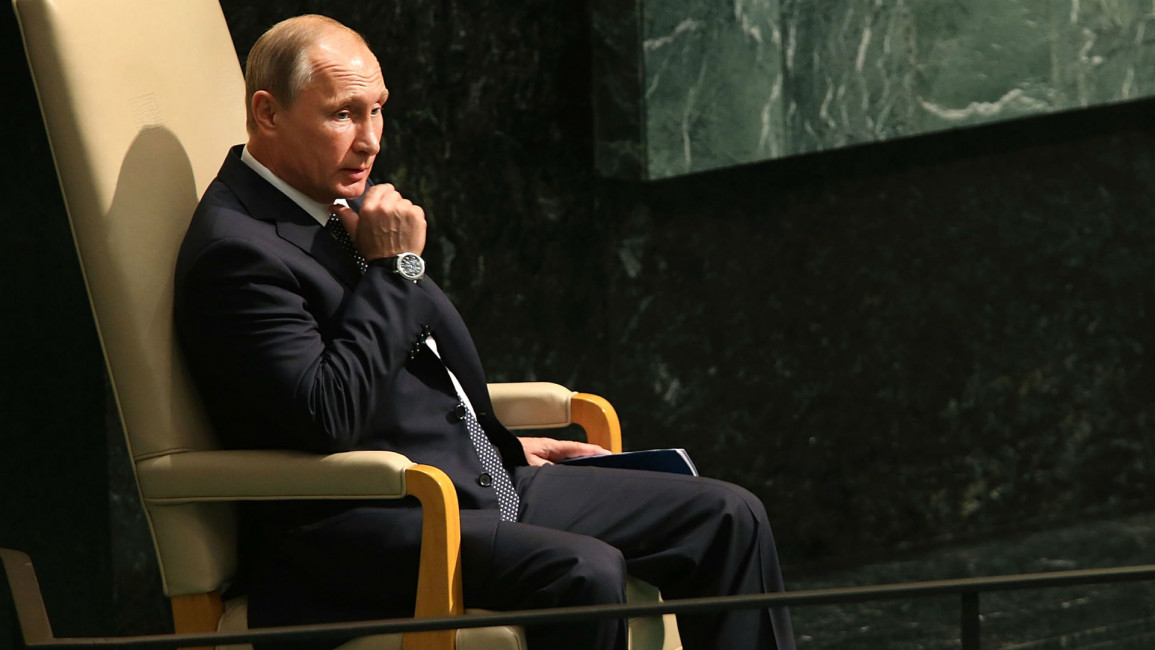
Russian intervention: The final chapter of the Syrian war?
In an expected development, President Obama told the United Nations General Assembly that the United States was willing to work with Russia and Iran to solve the Syrian crisis - while simultaneously rejecting any role for Assad in Syria's future.
Along with Russia's recent military move in Syria, this could mark the beginning of the resolution of the civil war.
It marks a transformation within the international position regarding the persistence of Assad in power. Whereas most key international players have already demanded Assad’s immediate departure, several have reviewed their positions, and now appear open to the Syrian president's inclusion in a short-term process that could lead to a solution.
Responses
The European position with regard to any solution in Syria appears to have been influenced by the current refugee crisis. The EU member states that are most strongly pressured by the increasing presence of desperate people have thus begun to reconsider their "red lines" when it comes to Syria.
This has been confirmed by a series of statements endorsing more lenient conditions for ending the war.
Angela Merkel and David Cameron have both accepted the suggestion that Assad take part in a transitional period of leadership. Francois Hollande, however, is still unremitting in his insistence that Assad be removed from power.
The Turkish government adopted a similar view. Whereas Erdogan appears to have initially accepted Assad's participation in some form of transition, Prime Minister Ahmet Davutoglu has restated Turkey's opposition to such a settlement - insisting that the Syrian regime be excluded from any political solution.
| The European position with regard to any solution in Syria appears to have been influenced by the current refugee crisis |
Though Turkey's initial position appears to have been that of retreat upon realising the seriousness of the Russian intervention, several other internal factors have a bearing on the decision. These include a significant drop in Erdogan's popularity in Turkey ahead of imminent elections along with the renewed battle against the PKK.
The Russian presence also jeopardises implementing Turkey's suggestion of a safe zone along the Turkish-Syrian border, a proposition aimed at keeping the main group of Kurdish fighters in Syria (YPG) distant.
Between the US and Russia
The new Russian presence has already led to a number of diplomatic achievements prior to direct intervention in the conflict. Russia has managed to force itself as an essential player in order to avoid being marginalised, a lesson that was learned following the ousting of Gaddafi in Libya.
Moreover, Russian diplomacy has achieved some degree of success in effecting a shift in the international position with regard to the current Syrian regime, which appears to be requisite for any form of solution.
But this remains inadequate in the absence of proper endorsement. The meeting between Putin and Obama did not lead to any concrete agreement over the Syrian situation, though any Russian military intervention must necessarily be accompanied by a US green light, even if that is not explicitly articulated.
A US agreement to direct Russian military involvement could be motivated by the absence of a clear plan in Syria.
For a while now, the US has been pushing for deploying trained Syrian opposition forces in order to establish a military foothold. Yet this has met with repeated failure, most recently announcing that 25 percent of the arms issued to one of the units had been surrendered to the Nusra Front, al-Qaeda's franchise in Syria, in exchange for guaranteeing safe passage.
Under these conditions, the US finds itself without a local ally facilitating its intervention on the ground.
But where the US has thus far failed, Russia continues to acquire an advantage in its increasing support for the Syrian regime. Accordingly, if the United States is serious about battling IS, the Russian presence might be the best option available.
On the other hand, Russia's involvement in Syria appears to be the product of several factors.
| If the United States is serious about battling IS, the Russian presence might be the best option available |
First, Russia has a legitimate concern about the possible backlash of Russian-speaking fundamentalists currently fighting in Syria. Russia seeks to protect its national interests through ensuring that IS does not extend to former Soviet Union states.
Second, the Russian state clearly wants to protect its ally in the Middle East.
Third, the imposition of sanctions on Russia by the West following the annexation of Crimea has led to its isolation from a large segment of the international community. Putin's move can be seen as an attempt to overcome this isolation, through calling for an anti-IS coalition - which would also include the Syrian regime.
But if the formation of such a coalition fails, Russia could resort instead to a more regional partnership, along with Iran and Syria.
The outcomes of such a rift between Russia and the West would be unclear, as this could leave regional support for IS intact, rendering the Russian troops in battle against a covertly backed IS in a long, draining conflict.
Karim Barakat is an instructor of philosophy in the American University of Beirut.
Opinions expressed in this article remain those of the author and do not necessarily represent those of al-Araby al-Jadeed, its editorial board or staff.




